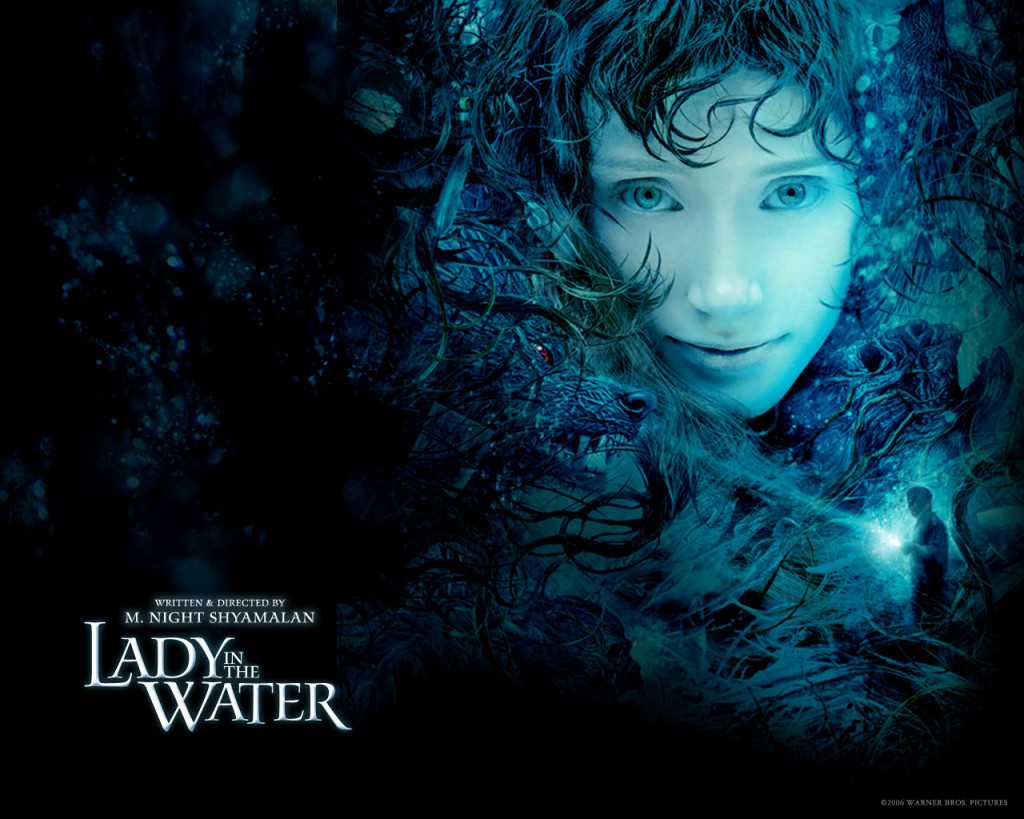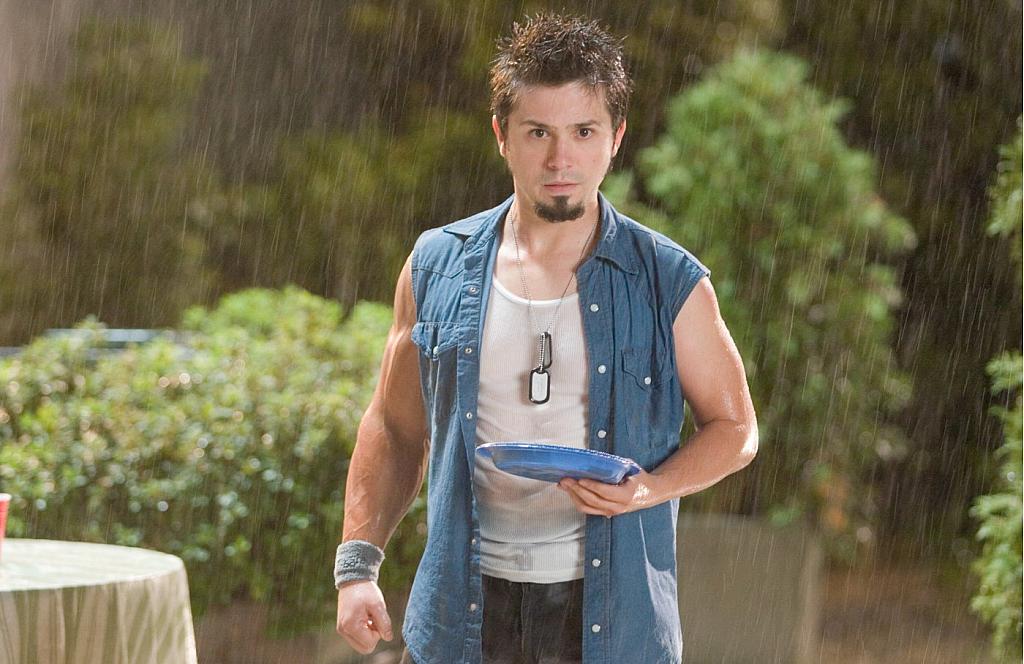I don’t think there are five directors in history who have had as unusual of a career as M. Night Shyamalan. He came out of the gate with two hit movies and everyone was anointing him the next Steven Spielberg. He’s since directed six films that the majority of people consider to be really bad (with the exception of maybe Signs). That’s resulted in a huge backlash against him. But I think the real reason there are so many M. Night haters is that he’s so defiant about his script’s problems. While he never comes out and says it, his m.o. after a flop is to insinuate that critics and audiences don’t “get it.” Maybe if M. Night had some humility and took himself a little less seriously, he’d endear a lot of those fans to come back to his side (or at least not spend half their day pounding him on message boards). I picked “Lady In The Water” to analyze because I believe it’s the moment audiences first began to realize that M. Night may be a one-trick pony. Sure, his next film (The Happening), was worse. But I think this one represents a lot of what’s wrong with Night as a writer. I remember watching it and just thinking, “What WAS that??” For those who didn’t see the film, it’s about a middle-aged sclumpy apartment building manager (“Cleveland,” played by Paul Giamatti) who’s visited by a strange girl (named “Story” – no, I’m not kidding) who seems to have arrived via the pool in the middle of the complex. In order to get her back to her world (the “Blue World”), Cleveland will need to learn about her strange universe and enlist the help of all the tenants in the building. It’s really bad! Let’s dig in.
1) Never place symbolism or theme above story – This is Night’s Achilles heal. He’s said in the past that a story must meet something like 7 criteria for him to make it, and most of that criteria involves theme and symbolism. Let me make something clear to you: If you ever write something where theme or symbolism is more important than story, you will never sell your script. You may impress your old English professor. But you will not sell the spec. With specs, story ALWAYS comes first. Write a good story, and then have theme and symbolism SUPPLEMENT that.
2) Listen to criticism – For some odd reason, Night continues to make the same mistakes over and over again (prioritizing theme and symbolism being one of those mistakes), despite nobody going to see his films anymore. As a writer, it’s your job to LISTEN to what somebody is saying when they critique your screenplay. Too many young writers blow this off, believing the reader “didn’t get it.” It may not be that they didn’t get it. It may be that you didn’t present the information in a way that allowed them to get it. So always listen to criticism and even if you don’t agree with the critic, try to understand why they’re saying what they’re saying.
3) Criticism Example – Let me give you an example. A long time ago, I wrote a script about a guy who was dying of brain cancer who had to jump into the future to get it fixed. Things don’t go cleanly when he gets there. There’s a lot of chasing around – double-crossing – that kind of thing. Almost everyone who read the script felt that the hero was too selfish. A producer eventually suggested, “Instead of him trying to save himself, why not have him try to save someone else?” I immediately dismissed his suggestion. I couldn’t imagine it. I just couldn’t. I’d built this character from the ground up and there was no way in my mind I could see him as someone other than what I created. So I stubbornly wrote a few more drafts MY WAY, but that same criticism kept coming back. I eventually put the script down, picked it back up a year later, and saw exactly what everyone was talking about. The hero was definitely too selfish. So I changed it from him going to the future to save himself to him going to the future to save his wife. The script instantly got better. I’m not saying that every critique will be right. But if you’re hearing the same thing over and over again, get away from the script (maybe not for a whole year, but for a little bit) come back, and try to see that critique through fresh eyes.
4) Don’t drown your story in mythology – Mythology is the world and rules behind that story you’ve created. If you try and make your mythology too extensive, it will become bigger than the story, and begin to drown it. This was the downfall of Lady In The Water. There were narfs and scrats and water people and tree people and eagles and madame narfs and rules upon rules upon rules of how this universe was supposed to work. It was too much. Too confusing. And eventually the audience checked out because they couldn’t keep up with it all. I’m not saying extensive mythology can’t be done. That Harry Potter franchise did okay. But, it’s very hard to do well. Focus on keeping only the relevant aspects of the mythology in the script. And if it’s still too much, consider simplifying it.
5) Quirky for quirk’s sake is a recipe for disaster – In Lady in the Water, we’ve got a guy who only works out with one arm!!! So he’s got a tiny left arm but a really big muscular right arm. There is no story reason for this to happen other than it makes him WACKY and QUIRKY. When you do this, the reader feels the writing. He notices you, the writer, typing away. If you’re doing your job right, the reader will never think of you. He will be so wrapped up in your story that he isn’t aware its even been written.
6) Beware coincidences when writing screenplays – A woman from another world shows up in an apartment complex pool, and it just so happens that a couple of Korean residents in that complex know an obscure Korean fairytale that contains all the details of this woman’s past and what she needs to do to get back home. Coincidental? Of course. And again, it makes us think of the writer. Stay away from coincidences. They are bad and do terrible things to your story.
7) The “fate” excuse isn’t good enough – “But no,” the writer says, “The Korean residents knew the fairy tale because fate brought the lady in the water in touch with them!” Whenever you’re using the “fate” reason to explain story holes or fill in story gaps, the script begins to feel LAZY. Think about it. It’s such an easy solution. It gives you carte blanche to have a million coincidences happen, which kills any suspense your story may have. The “fate” angle can work if it’s used selectively and cleverly, but when it’s used lazily, it kills your story.
8) Beware the close cousin of coincidence: convenience – When the story needs to move quickly, our water nymph girl knows the exact answers to all the tough questions about her world (“Oh yeah, a scrat? This is how you defeat it.”). Other times, when we need to give Cleveland something to do, she all of a sudden has no clue of what’s going on (“Which person am I supposed to meet here? Beats me!”). How convenient, right? Convenience is yet another sign of lazy writing.
9) Use gas on your emotional beats, not nuclear power – Night has a real problem with this. His moments can’t just be sweet emotional connections between people. They have to have an added element that REALLY. HITS. YOU. OVER. THE HEAD. So there’s this potentially nice scene where Cleveland must heal Story. He’s on the ground with her in his arms. She’s dying. And as he’s about to talk her back, the seven women behind him all place their hands on his back! Give. Me. A break! Your emotional beats should be powered by gasoline. Not a nuclear reactor.
10) Silly/goofy choices – I don’t really know how to convey this tip in a way that will help people. Because we all live in our own reality. What’s amazing to us may be boring to Joe in Kansas. What’s cool to us may be lame to our best friend. Having said that, I read so many amateur scripts where writers make the goofiest silliest choices, and they don’t seem to realize it for whatever reason. M. Night suffers from a really bad case of this. He had a scene in The Happening where characters ran from the wind! He had a scene here where a ten year old boy extracts key story information from a cabinet full of cereal boxes! He’s got a character here who has one huge muscled arm and one regular one! Obviously, in Night’s universe these choices aren’t goofy. But the rest of the world disagrees. So to avoid this mistake, you have to step out of your shoes, read through your plot, and ask, “Would people perceive this choice as silly?” And be honest with yourself. Even better, ask your friends (only the ones who tell you the truth). Because I see things like this ALL THE TIME and I ask, “What were they THINKING?” Not enough writers scrutinize their choices. Don’t be one of those writers.



